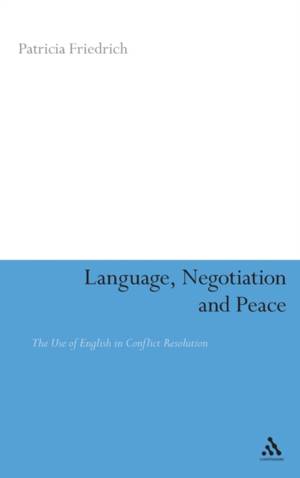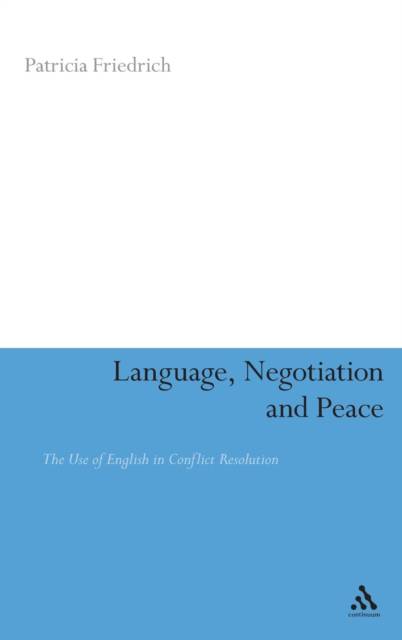
- Afhalen na 1 uur in een winkel met voorraad
- Gratis thuislevering in België vanaf € 30
- Ruim aanbod met 7 miljoen producten
- Afhalen na 1 uur in een winkel met voorraad
- Gratis thuislevering in België vanaf € 30
- Ruim aanbod met 7 miljoen producten
Language, Negotiation and Peace
The Use of English in Conflict Resolution
Patricia FriedrichOmschrijving
The end of the twentieth- and beginning of the twenty-first centuries have witnessed a large scale increase in demands for international peace keeping mechanisms. Because of a complex history of spread and power, English has become the de facto lingua franca of international communication and negotiation, and the inevitable accompaniment to this is the growth in hostility against the perceived imperialism of the English language. This book argues that the growth of English(es) as a lingua franca has the potential to foster closer bonds between communities, countries and continents. Using the background methodology of Peace Studies, Patricia Friedrich applies political theory to linguistic evidence, to show how English can be instrumental both in the restoration of peace and in the building of social justice. In this analysis, the language classroom emerges as a central site in conflict prevention.
A fascinating, innovative study of the place of the English language in the modern world, this book will be of interest to academics researching applied linguistics or world Englishes.
Specificaties
Betrokkenen
- Auteur(s):
- Uitgeverij:
Inhoud
- Aantal bladzijden:
- 144
- Taal:
- Engels
Eigenschappen
- Productcode (EAN):
- 9780826493736
- Verschijningsdatum:
- 1/07/2007
- Uitvoering:
- Hardcover
- Formaat:
- Ongenaaid / garenloos gebonden
- Afmetingen:
- 170 mm x 238 mm
- Gewicht:
- 576 g

Alleen bij Standaard Boekhandel
Beoordelingen
We publiceren alleen reviews die voldoen aan de voorwaarden voor reviews. Bekijk onze voorwaarden voor reviews.











